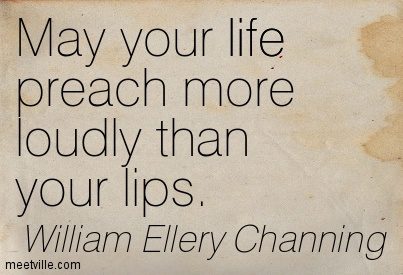In 1993, a hundred years after the renowned World Parliament of Religions met in Chicago a second parliament gathered. The highlight for many was an address by the Dalai Lama. And certainly a worthy thing.
For me, however, the most important thing to come out of that gathering was a document, “Towards a Global Ethic.” The principal author was the Roman Catholic priest and scholar Hans Kung. Father Kung is something of a controversial figure within his church, I once heard him described as the Catholic Church’s finest Lutheran theologian. He is nonetheless considered one of the ecumenical Christian community’s finest minds.
The document declares there are “four broad, ancient guidelines for human behavior which are found in most of the religions of the world,” which it listed as “irrevocable directives” for those who would find peace on and for our planet.
The document was signed by two hundred religious leaders representing, if not officially, pretty much all the world’s religions, including Christians, Jews, Muslims, Taoists, Jains, Hindus, Sikhs, Buddhists, Zoroastrians, Baha’i, Native Americans and other earth-centered traditions. The Dalai Lama signed it, as did the Reverend Dr Robert Traer of the General Assembly of Unitarian and Free Christian Churches in the United Kingdom, and, I’m delighted to note, my old mentor the Buddhist scholar Professor Masao Abe.
These irrevocable directives were, I should say, are 1) a commitment to a culture of non-violence and respect for life 2) a commitment to a culture of solidarity and a just economic order 3) a commitment to a culture of tolerance and a life of truthfulness 4) a commitment to a culture of equal rights and partnership between men and women.
I’m deeply moved by this analysis, which I think cuts through the fog of the conservative part of religions, that part which is meant to sustain and transmit a particular culture, defining an inside and an outside, a us and a them – and, which is so often the part of religion used as a club to beat people into conformity. And, instead, really, really succeeds at pointing to the radical heart of pretty much all religions, that part which opens us to the finest of what it means to be human located within and among, fully celebrating, all as a part of some mysterious whole that claims our allegiance. More, claims our very lives.
The first of the directives, a grand intuition of our deep humanity, is that in spite of our natural proclivities to violence, there is always the possibility of a better way. The second tells us we genuinely are responsible for each other, and how our lives need to take that deep truth into account. The third points to our need for broad tolerance, which is found within our commitment to genuine honesty with our selves and with each other. And, finally, that fourth, so buried in so many religions, but implicit at their heart, that women and men need each other, and can only heal from the wounds of life when we see we are all in it together as equals. I would add that the issues of sexual minorities are bound up with this last assertion, inevitably, inextricably. The only thing missing is a clear statement seeing beyond the wounds of race. Sadly, it is a big thing missing.
Small wonder the Zen Peacemakers founded by Roshi Bernie Glassman and other members of the White Plum Asangha have adopted it as a principal document. And, my own Boundless Way Zen has, with some tweaking of the language to address our own sense of the need to fix that one missing point by explicitly including women, and men, and people of every race and condition sharing this small and fragile planet, trying to capture that fullness through the phrase “all people,” also take it as a core document, usually cited in our precepts ceremonies as well as in our ordinations.
I commit myself to a culture of nonviolence and reverence for life;
I commit myself to a culture of solidarity and a just economic order;
I commit myself to a culture of acceptance and a life based on truthfulness;
and I commit myself to a culture of equal rights and partnership among all people.
Here we these four commitments I feel we find something terribly important being held up. It is a call to a life of authenticity and truth. And it shows us a way of healing for hearts and mending a world torn by strife.
And certainly, certainly this is something expressing much of the heart of the Zen way. At least as I’ve come to understand that way of holiness and care through attention to the totally ordinary. For me this document and its four “irrevocables” take us from ink on paper and into our actual lives.
There is a Japanese saying, gyogaku funi, which means “practice and study are not two. And these four deceptively simple statements, these four commitments are a pretty good way to find how that practice and our investigation of the deep matter are in fact not two.
And, yes, not one, either. Messy. And beautiful.













